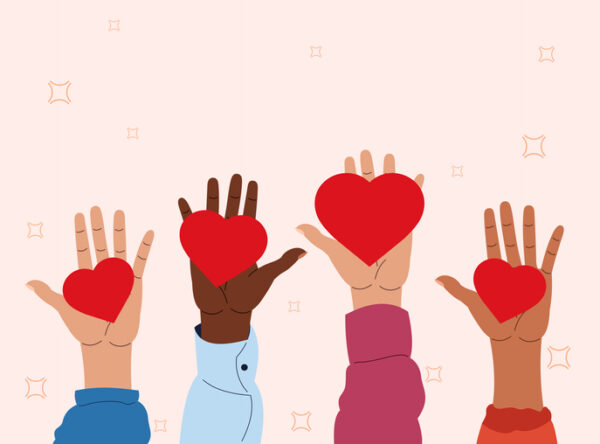
Currently, all populations, regardless of race or ethnicity, experience difficulty in accessing mental health treatment. The U.S. behavioral health care system is in crisis, with Mental Health America reporting that for every mental health provider, there are an estimated 350 individuals in need of treatment. The same organization estimates that over half (54.7%) of all U.S. adults with a mental illness — more than 28 million people — do not receive treatment for one reason or another.
Access to care is just one of the problems
Statistics reveal that those reasons may be more prevalent for minority populations as it relates to mental health treatment and access to care; specifically, minorities may face additional challenges and barriers to care due to unique cultural factors and lived experiences. According to the Kaiser Family Foundation, among adults with any mental illness, Hispanic (40%), Black (38%), and Asian (36%) adults were less likely to receive mental health services than White (56%) adults. A 2020 research report commissioned by the U.S. Substance Abuse and Mental Health Services Administration showed that 27.5% of Black adults received prescriptions for medication to manage their mental health conditions, compared with 44.5% of White adults. In 2020, only 28% of Black and 27% of Hispanic, non-elderly adults reported a mental illness or substance use disorder, compared to 36% of White, non-elderly adults.

NEMT Partner Guide: Why Payers and Providers Should Choose MediDrive’s TMS
Alan Murray on improving access for medical transportation.
Underserved populations face additional mental health challenges beyond access to care. Cultural factors and individual experiences play significant roles in the ability to receive treatment. Issues relating to language barriers and cultural differences can make it difficult to seek and obtain mental health treatment resulting in higher levels of anxiety, PTSD, and depression.
The lack of representation in the mental health workforce
The rising demands on the mental health care system are occurring as the U.S. undergoes a significant demographic shift. Nationwide, Black individuals make up 4% of psychologists and just 2% of psychiatrists. This group is also under-represented among social workers (22%), marriage and family counselors (7%), and professional counselors (11%). Only 5% of psychologists in America are Hispanic.
By 2044, more than half of all Americans will belong to a group other than non-Hispanic White, according to the Census Bureau, yet the American Psychological Association reported that in 2021, approximately 80% of psychologists in the U.S. were White. By 2050, the number of individuals who have a limited ability to read, write or speak in English will be approximately 19% of the American population. Meanwhile, a study in Psychiatric Services showed that from 2014 to 2019, the number of facilities offering mental health treatment in Spanish declined by 17.8% — resulting in a loss of 1,163 Spanish-speaking mental health facilities.
The lack of diverse representation among mental health professionals is significant and having a culturally aligned provider can make a critical difference for members of minority groups.
The correlation between long-term treatment adherence and culturally aligned care
The D’Or Institute for Research and Education has found that cultural adaptation of behavioral health treatment can result in safer, more effective, more efficient and more economical interventions. When mental health services are tailored to the cultural backgrounds and languages of patients, it fosters a sense of understanding and trust, which is crucial for effective treatment. Cultural alignment can also help in identifying symptoms and treatments for mental health disorders; specifically, providers with the knowledge and understanding of cultural variations can better recognize symptoms and intervene appropriately for those patients with diverse backgrounds.
This alignment also can serve to encourage individuals from diverse backgrounds to seek and continue treatment. Perceived compassion can influence the level of patients’ participation and their compliance with the proposed treatment, leading to better mental health outcomes. This approach also works to eliminate stigma, enhancing the chances of early detection.
Working toward a more equitable future
As the CEO of a behavioral health optimization company, I’ve seen firsthand the challenges people face when seeking mental health care, especially those from historically marginalized communities. While I recognize that expanding the diversity of our mental health workforce is crucial, it’s a long-term goal that won’t address the immediate needs we’re facing today. We need solutions now to bridge the gap between demand and access.
In my daily work, I’m focused on finding smarter ways to leverage our existing provider resources to ensure that we connect people with the care they need, quickly and effectively. We have the tools to start creating a more culturally competent mental health care system right now, and we can do so by:
- Enhancing cultural competence in our current providers: Training all mental health professionals to recognize and accommodate the diverse cultural backgrounds and unique needs of their patients is vital. This includes addressing implicit biases and understanding the distinct experiences of various communities.
- Engaging community: By working with community leaders and organizations, we can promote mental health awareness and reduce stigma, encouraging more individuals to seek the help they need.
- Advocating for equitable policies: We must push for policies that increase funding for mental health services in underserved areas and ensure that minority voices are represented in policy-making. These steps are essential for driving meaningful, large-scale progress.
Only by acknowledging and respecting the unique experiences of each patient and tailoring care to meet their specific needs can we start to close the gap in mental health disparities and ensure that everyone has access to quality care, regardless of their background.
Photo: Getty Images
Shana Hoffman, CEO of Lucet, has a passion for behavioral health that aligns with the core values of Lucet where she is dedicated to making high-quality mental health care accessible for all who need it. Previously she served as SVP of corporate transformation and chief operating officer of the Tri-State Mid-Atlantic Region at Beacon Health Options and spearheaded client development and growth efforts at Kyruus, a leader in provider search and scheduling solutions for hospitals and health systems. Shana graduated from the University of Pennsylvania with a BS in Engineering and holds an MBA from Harvard Business School.
This post appears through the MedCity Influencers program. Anyone can publish their perspective on business and innovation in healthcare on MedCity News through MedCity Influencers. Click here to find out how.









